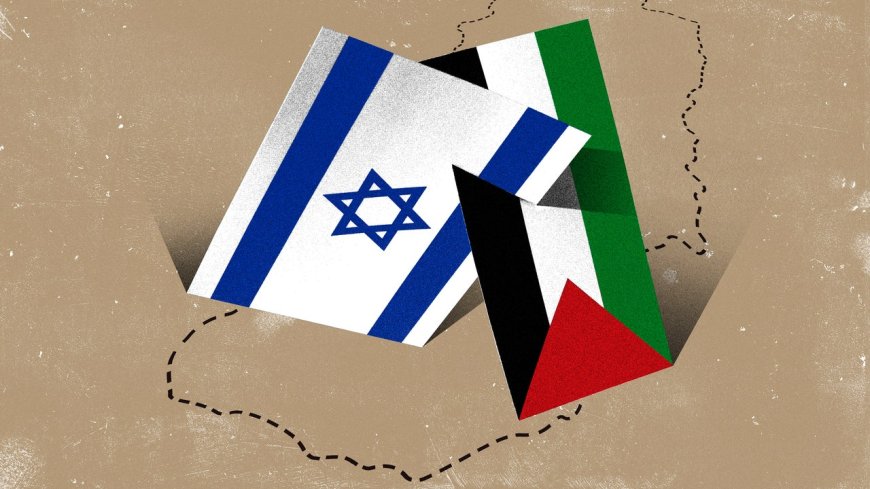Rashid Khalidi on the Palestinian Cause in a Volatile Middle East, and the Meaning of Settler Colonialism
The New Yorker Radio HourThe historian argues that early Zionists saw themselves as colonizers in Palestine. “That’s not some antisemitic slur,” he says. “That’s the description they gave themselves.”Illustration by Diego MalloListen and subscribe: Apple | Spotify | Google | Wherever You ListenSign up for our daily newsletter to get the best of The New Yorker in your in-box.Power dynamics in the Middle East shifted dramatically this year. In Lebanon, Israel dealt a severe blow to Hezbollah, and another crucial ally of Iran—Bashar al-Assad’s regime in Syria—was toppled by insurgents. But the historian Rashid Khalidi is skeptical that these changes will set back the Palestinian cause, as it relates to Israel. “This idea that the Palestinians are bereft of allies assumes that they had people who were doing things for their interest,” Khalidi tells David Remnick, “which I don’t think was true.” The limited responses to the war in Gaza by Iran and Hezbollah, Khalidi believes, clearly demonstrate that Iran’s so-called Axis of Resistance “was designed by Iran to protect the Iranian regime. . . . It wasn’t designed to protect Palestine.” Khalidi, a professor emeritus at Columbia University, is the author of a number of books on Palestinian history; among them, “The Hundred Years’ War on Palestine” has been particularly influential. The book helped bring the term “settler colonialism” into common parlance, at least on the left, to describe Israel’s relationship to historic Palestine. Sometimes invoked as a term of opprobrium, “settler colonialism” is strongly disputed by supporters of Israel. Khalidi asserts that the description is historically specific and accurate. The early Zionists, he says, understood their effort as colonization. “That’s not some antisemitic slur,” he says. “That’s the description they gave themselves.”Plus, the concept of settler colonialism has been applied, on the political left, to describe Israel’s founding, and to its settlement of the Palestinian-occupied territories. This usage has been disputed by supporters of Israel and by thinkers including Adam Kirsch, an editor at the Wall Street Journal, who has also written about philosophy for The New Yorker. “Settler colonialism is . . . a zero-sum way of looking at the conflict,” Kirsch tells Remnick. “In the classic examples, it involves the destruction of one people by another and their replacement over a large territory, really a continent-wide territory. That’s not at all the history of Israel and Palestine.” Kirsch made his case in a recent book, “On Settler Colonialism: Ideology, Violence, and Justice.”New episodes of The New Yorker Radio Hour drop every Tuesday and Friday. Follow the show wherever you get your podcasts.The New Yorker Radio Hour is a co-production of WNYC Studios and The New Yorker.

Listen and subscribe: Apple | Spotify | Google | Wherever You Listen
Sign up for our daily newsletter to get the best of The New Yorker in your in-box.
Power dynamics in the Middle East shifted dramatically this year. In Lebanon, Israel dealt a severe blow to Hezbollah, and another crucial ally of Iran—Bashar al-Assad’s regime in Syria—was toppled by insurgents. But the historian Rashid Khalidi is skeptical that these changes will set back the Palestinian cause, as it relates to Israel. “This idea that the Palestinians are bereft of allies assumes that they had people who were doing things for their interest,” Khalidi tells David Remnick, “which I don’t think was true.” The limited responses to the war in Gaza by Iran and Hezbollah, Khalidi believes, clearly demonstrate that Iran’s so-called Axis of Resistance “was designed by Iran to protect the Iranian regime. . . . It wasn’t designed to protect Palestine.” Khalidi, a professor emeritus at Columbia University, is the author of a number of books on Palestinian history; among them, “The Hundred Years’ War on Palestine” has been particularly influential. The book helped bring the term “settler colonialism” into common parlance, at least on the left, to describe Israel’s relationship to historic Palestine. Sometimes invoked as a term of opprobrium, “settler colonialism” is strongly disputed by supporters of Israel. Khalidi asserts that the description is historically specific and accurate. The early Zionists, he says, understood their effort as colonization. “That’s not some antisemitic slur,” he says. “That’s the description they gave themselves.”
Plus, the concept of settler colonialism has been applied, on the political left, to describe Israel’s founding, and to its settlement of the Palestinian-occupied territories. This usage has been disputed by supporters of Israel and by thinkers including Adam Kirsch, an editor at the Wall Street Journal, who has also written about philosophy for The New Yorker. “Settler colonialism is . . . a zero-sum way of looking at the conflict,” Kirsch tells Remnick. “In the classic examples, it involves the destruction of one people by another and their replacement over a large territory, really a continent-wide territory. That’s not at all the history of Israel and Palestine.” Kirsch made his case in a recent book, “On Settler Colonialism: Ideology, Violence, and Justice.”
New episodes of The New Yorker Radio Hour drop every Tuesday and Friday. Follow the show wherever you get your podcasts.
The New Yorker Radio Hour is a co-production of WNYC Studios and The New Yorker.



























































